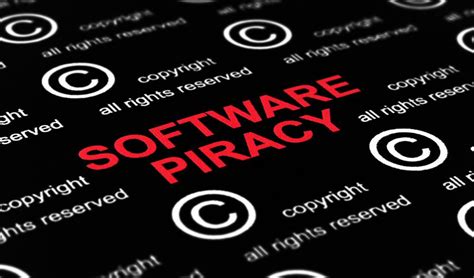Basically in a course I am taking, I have to find global challenges and implications of a digital topic. So we turned to piracy in the end because it has been here for a while (and lets face it, I was biased and its my favorite topic.) and has its qualities and some drawbacks which need to be discussed in a topic like that. With the rise of streaming services and enshitification of most things we know of, Piracy has crawled out of the shadows and become less niche and more a valid option.
I would love if you all can give my some of your opinions on it. Any documentations, reads or articles and some valid points to help to discuss with my group (they are not all tech nerds …)
OFC we will discuss the issues of services today, why piracy has slowed with the rise of streaming services (and back up ahahah). We will discuss that piracy helps in a way to preserve data, culture etc. The good and the bad of it. Impact of piracy in the creative goods sector in sciences. What governments do to counter piracy…
So really any stat that is justified of course, any reasons to do so (is it more convenient?? Is it due to censorship in your country or limited access to information?? DRM ?? Monopoly no other alternatives??..)
I am open to all info and articles And thanks for your time too!
Maybe this book will help
Warez: The Infrastructure and Aesthetics of Piracy by Martin Paul Eve
https://archive.org/details/b904a8eb-9c98-4bb1-bf25-3cb9d075b157
Thank you for your help! I will give it a read and try to find interesting info in it !
https://papers.ssrn.com/sol3/papers.cfm?abstract_id=1436186
This paper used to be available on Rufus Pollock’s own website but today returns a 404.
https://rufuspollock.com/papers/optimal_copyright_term.pdf
In 2009 Pollock did the math and concluded that optimal copyright length for artists to recoup investment in developing the art balanced with making art available in the public domain was about 16 years.
This paper’s math isn’t easy to grok if you’re not an economist, but it’s a good resource that balances the need for copyright with the need for public domain knowledge and art.
Thank you will surely give it a look!
I think the documentary “How Music Got Free” takes anyone that was around back then right back to the days of scene races, FTP top sites, and IRC bots. And the documentary is about music, but it was the same for most all other media also (movies/games/etc.).
Piracy was never NOT mainstream. Sure, there’s been niche markets that only folks in those folds have exploited, but with respect to common proprietary, closed sourced, copy-protected or keyed software, There’s never been a time, except for perhaps 0day, when there weren’t cracking schemes to thwart the sovereignty of a respective company’s copyright and licensing; and that has always been seen primarily a good thing - within reason, and in moderation.
Case in point. wp51.exe The most prolific word processing application at one time (for a very, very long time) - something that Microsoft couldn’t seem to crack, and never really did, or would have, had it not been for Word Perfect Corporation spelling their own demise with the introduction of a version aimed at competing with Microsoft Word in the GUI itself… something that they needn’t have bothered with, did bother with, and put all of their chickens in that basket that eventually spelled their own demise.
You see, this is but one example of a program that forced the attention of every corporate CFO in the Fortune 1000 and beyond; especially in SOHO’s, where there litterally has never been a training budget.
Word Perfect dominated the legal community and that of medical transcription as well. It was fast, it was precisely unambiguous in its display space and unlike Microsoft word, forcefully encouraged the user to forgo using that mouse-thingy. If a typist approaches 100 wpm, yet has to constantly remove one of their hands from the keyboard to interact with the program in someway, that translates into hundreds of thousands of dollars per year that a company has to spend in lost productivity.
But although that fact was the defining factor on why Word Perfect eventually eclipsed Wordstar and Microsoft Word never got a foothold in the professional market where anyone typing >=40wpm was in demand as an office employee, the real reason it reigned supreme was the avoidance of training expenses for newhires.
You see, what you purchase for software to run your business is to a very great degree, driven by the marketplace, and when you decided on whether to standardize on Microsoft Word or Word Perfect in your company, a quick survey of job applicants would reveal that (due to easy to use software piracy cracks) an overwhelming majority of those applicants were already proficient in using Word Perfect 4 or 5.
Now it deserves mention that this piracy wasn’t occuring in the business world, but rather, the personal, private spaces of the people applying for those jobs. A demographic very dificult to track down at the time, and even more dificult to prosecute with anything but a Pyrrhic victory in mind. It costs money to prosecute, and you can’t get blood from a turnip, as they say.
A simple exe could crack Word Perfect and it was also traded about through BBSes as an already cracked product. As expected, the low hanging fruit is what deer, and people, reach for. Word Perfect had always hung at eye level, and the market that pirated their software wasn’t going to buy it regardless, so they’ve effectively lost nothing, but gained everything - because the mass majority of typists were proficient in it’s operation, and if a company standardized on Word Perfect, newhires could hit the ground running with zero, or minimal training expense.
Lotus 123 and others had a similar story. SuperCalc, Dbase II, etc., were in use in peoples homes because tiny little programs distributed over public BBSes like COPY2PC could diskdup the system floppy and you could make as many copies of it that you liked, and give it to your friends. So much money has been spent on anti-piracy measures over the decades with not much thanks from software publishers, sort of; they will acknowledge the fueling of adoption of their products in the business marketplace due to the decisions of the bean counters who bowed to standardizing on software that most job applicants would be likely to already be proficient in.
There’s a whole culture, or perhaps, sub-culture of people who will buy DRM encoded books, strip the encoding, and then share those works in places like LibGenesis or priviate torrent trackers - just because they find DRM abhorrent!
The inverse is not true. Reasearch studies have shown time and time again that even if you charge for an ebook, if you make a big deal out of declaring that nothing you sell is DRM encoded, and ask that people respect the trust you have endowed them with, they’ll tell their friends to go and buy the book more often than not, when someone asks them to give them a pirated copy.
Go figure.
There’s something to be said for the honor system, but moreover, why pay someone that you would never trust in the first place for the privilege of having a license to use their software - their proprietary, closed source software product? Why, you could just use #FOSS instead, products like:
LibreOffice
GIMP
Inkscape
FrontAccounting
NextCloud
MariaDB
PostgreSQL
Nginx
Apache
Proxmox VE
KeePassXC or VaultWarden
Thunderbird
Firefox
VLC
Okular
KdenLive/OpenShot
OBS
Did I mention Linux, FreeBSD, OpenBSD, or NetBSD?Something I’ve always done with my customers, when unleashed to erradicate proprietary, closed source software from their premises, is to first acquire an internal audit of all of the costs involved in licensing such software in an ongoing model. Then, present those numbers, and after specifying that all things considered, labor costs will be the same not matter what (I’ll make the same amount anyway), but that they’ll never have to pay for another license again…
Then, require a firm agreement that each year the company contribute monetarily to most or all of the FOSS projects that produced the software they use. I actually leave just how much up to them, typically stating, “A dollar or a thousand dollars per year, I’m going to leave that to your conscience, but each year, look at this sheet of paper showing how much you would spend with that proprietary software that you could never really trust your privacy or company’s secrets to anyway, and then break out your checkbook in good faith.”
I leave the rest of that story to the honor system.
#tallship #FOSS #Software_Piracy
⛵
.


I think the most “pirated” software ever would be WinRar. EVERYONE broks the term of service by using it more than 30 days, and then simply closing the popup when it opened (and even if you found it annoying, there’s a simple licence file floating around that you can effortly use). Milions used it without paying the licence they should have, but WinRar didn’t care, because they are (were) ubiquitous and companies probably happily paid those licences for a software eveybody knew how to use.
What a nice read I never heard of word perfect but that is in a way very precise example Tbf alternatives to ms word are hard to come by. Not saying ms word is perfect it actually pretty bad if u think abt it but no alts are at the level of it as of now. Tried libre didn’t like the cluttered Ui. I did like OnlyOffice but had several bugs that crashed the app and removed saves. While it is true that a more pirated copy makes more people use a software taking ur example. But whenever there is a monopoly, it is hard not to pirate or buy the software (looking at adobe). Though alternatives are quite good sometimes. I really loved Gimp and it could replace photoshop imo.
For the Drm on books it is also very true. Why use a book that is only openable in a proprietary software (looking at you adobe) that last for 3 days when u can find it in a shadow library or remove DRM. It reminds me of how awful it is compared to physical libraries. These are free or have a membership but u could in theory have a book as long as u need and find it there again (unless destroyed)
Though the honor system while in a way true in practice i do not know if numbers add up. If a service is good people abviously buy it (like winRar strategy) But does it work overall?? I do need to dig into that. If u have any reliable info on it. It would be great. I did hear a study that found that people who pirate tend to spend or recommend more on creative works (Bandcam or direct donations…) Its a release of creative content Australia u can check it too…
As you also well said it is always better to go to foss software. But sometimes there are compromises people are willing to take or not. Yes there is also the issue with data with proprietary software (looking at you adobe) An example would be VLC. True it is great but it lacks customizability and ui that looks outdated. Or Linux. Personal experience was great but its still not quite there, due to many apps only able to run on windows out of the box (yes there is compatibility layers but still)
You can go to Annas and search “piracy”. Not sure how much materials you will get but there will be some
I did that with google scholar too ik there is a book that a read a bit called walled culture (abt intellectual property) will do that thx!
If you need some historical context, look up the recording industry anti-piracy panic that began when cassette recorders came onto the consumer market (early 80s?). Similarly the VHS panic when video could suddenly be recorded.
I haven’t kept any sources, but I recall a few studies over the years that showed the industry concerns were comically overblown and didn’t impact their bottom lines.
oooo that is actually a cool thing to look at actually i will see what i can find i did read something similar but for books and how publishers hated the numeration of books because they couldn’t control the copies of it !
Immediately go for the jugular and question the very existence of intellectual property as a concept.
"You are given this magical horn of plenty. It can feed any person anywhere in the world at any time! Do you not use it, avoiding the inevitable collapse of the global food production and distribution sector or do you use it so… you know, nobody will ever be hungry again? Is there a right and a wrong decision here?
You are also given the magical ability to copy and distribute any digital information infinitely and at no added cost…"
that is a very cool idea! but then how to counter the fact that money is needed to produce these things such as art, books etc Like dont we pay artists ? directly?
while digital property is really debated even believed that copyright for physical goods being copied to digital is no fair
so i could dig into digital intellectual property i will see what i can find
that is a very cool idea! but then how to counter the fact that money is needed to produce these things such as art, books etc Like dont we pay artists ? directly?
while digital property is really debated even believed that copyright for physical goods being copied to digital is no fair
so i could dig into digital intellectual property i will see what i can find
Excellent thinking! You can of course directly transition into discussions about things like basic income and the requirements of society to cater to the basic needs of all its members before anything like economic growth can even be allowed, but it might be more useful to ask the following questions:
- If we removed all art - all paintings, all books, all music, all movies, all games, all installations, that were not commercially produced or commercially produced at a loss - from existence, wouldn’t that still leave more than could ever be consumed in hundreds of human lifetimes? And if so, why do we even need commercial art?
- Or more nuanced: How much commercial art does the world need?
Because once you answer that question you know roughly how much public funds to allocate to art production. Depending on who you ask the answer might even be zero or close to zero.
Artificial scarcity is a crime against humanity. Piracy is the first aid. The solution would be a system that pays for the value produced anywhere in society, including when a copy is used to have fun or make profit. Movie makers would get paid more if they received good ratings from consumers. News Corp would get fined for destroying value.
That would be a great systeme tbf. Everyone wants that. But idk if in practice it can work. For news corps for example usually click baity reads earn more than genuine journalism which is sad abviously.
The system you propose for movies should be doable. More views, more reviews = more earnings. It is more like cinemas in a sense viewers pay with their money. But as comments said there should also be a limit of how much you earn. It should not be an awful pay but here is where more research is needed. And should become public after a while or whenever it fully covered costs and some revenue for whoever did it.
My only concern is that is this limit going to discourage people to produce movies, music etc?
It would require replacing the money system with a value production estimation and reward system.
I don’t support an upper limit for income. I want wealth tax and inheritance tax to prevent excessive accumulation.
The production is a fixed one time cost.
Once that cost is covered, the rest is profit.
It is important and fair to cover the cost of production and also have some gains on top of that.
But at some point it switches to bringing ongoing profit for no ongoing work or effort.
Where that point lies axactly is open to discussion. But after it has been reached, it is surely not morally wrong to distribute that media freely. Ideally it would be legally required to turn it to public domain, which would increase competition, quality and creativity of the whole landscape.
Minor point, there’s energy, maintenance and hosting costs of on-going digital services as well as costs for continued development and improvement. For most digital goods though you’re right
tbf that is a great point I just now need to find a paper discussing that system ur describing. I never thought about that like that tbf but some issues arise like what is the production cost?? who determines that or moderates it? but again great idea i hope i can find some papers taking ur point to a more practical point (if it is employed somewhere or if u might have an example of such system that has been studied)
Some interesring reads that are related and could be a starting point:
https://en.wikipedia.org/wiki/Anti-rival_good
https://maxkasy.github.io/home/files/other/ML_Econ_Oxford/digital_socialism.pdf
https://www.cs.rutgers.edu/~rmartin/teaching/spring03/cs553/papers02/07.pdf
I will look at those too thanks!!! ☺️
Here in the UK (and elsewhere I’m sure) there is public funding for the arts. It’s recognised as being good for culture but that it also stimulates the broader econony. In that way it is treated as a public investment with expected public (and private) returns.
Thanks for the answer i will look more into that i did not know abt public art fundings !







